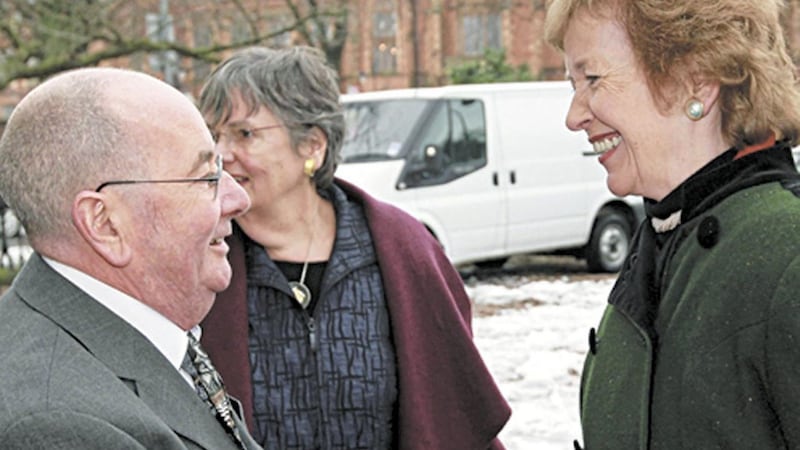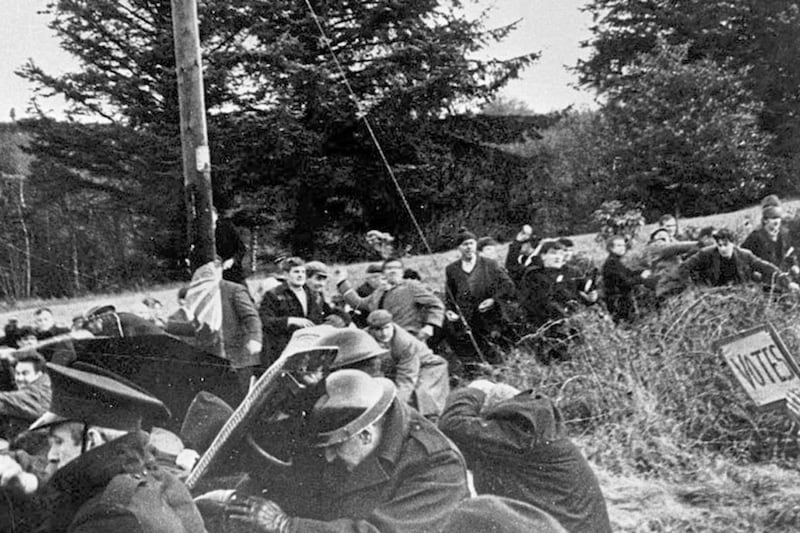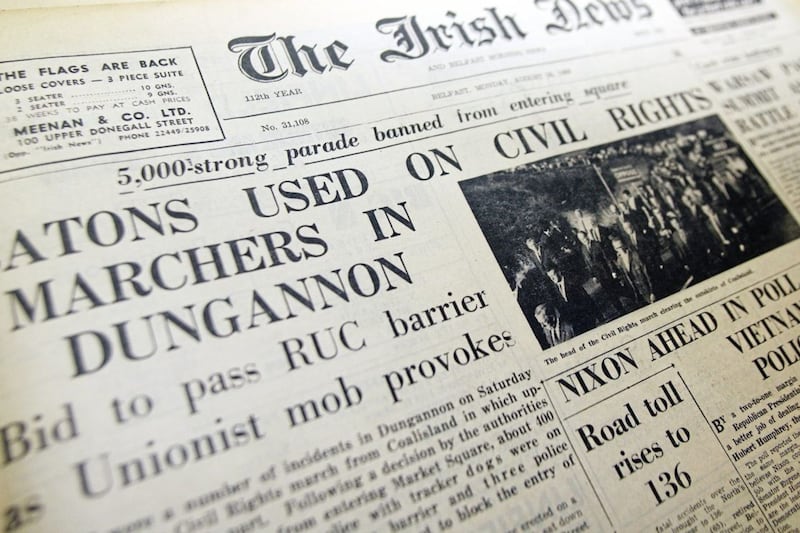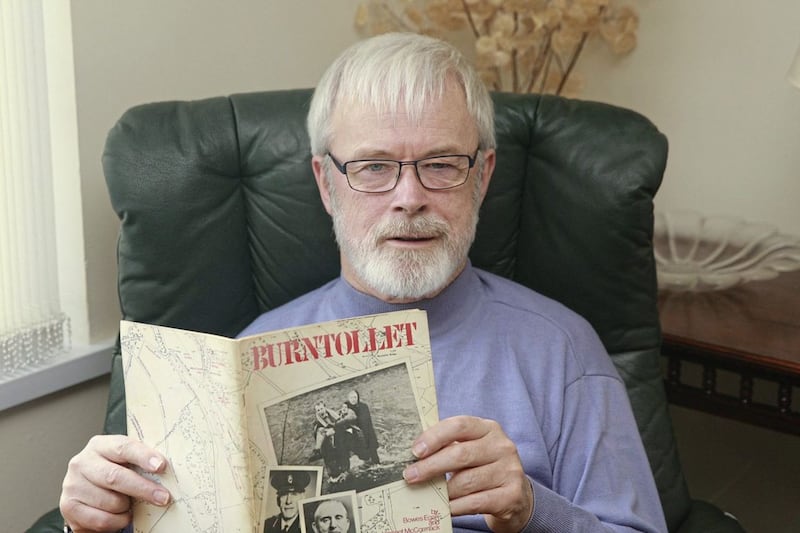Vincent McCormack believes the attack on student civil rights’ campaigners at Burntollet outside Derry was a key step on the path towards the equality won through the Good Friday Agreement.
Today is the 50th anniversary of the Burntollet attack on a student People’s Democracy march from Belfast to Derry in support of civil rights.
As a student, Vincent McCormack took part in the four-day march along with his future wife, the late civil rights’ campaigner and trade union leader, Inez McCormack. Mr McCormack, along with fellow-campaigner, Bowes Egan, published 'Burntollet', the definitive account of the attack, in August 1969.
Assaulted all along the way of the march, the students came under the most violent attack at Burntollet, where they were funnelled into the attack zone by police who told them there was only minor opposition, according to Mr McCormack. He told the Irish News the small group of protesters was vastly outnumbered by waiting attackers, led by Ian Paisley supporter, the late Major Ronald Bunting.
With make-shift weapons and bundles of rocks, the loyalists didn’t discriminate between male or female as they attacked. In his 1969 book, Mr McCormack detailed eyewitness accounts of the assaults.
Belfast school teacher, Judith McGuffin recalled “showers of rocks” crashing around them.
The People’s Democracy protester told Mr McCormack: “A middle-aged man in a tweed coat, brandishing what seemed to be a chair leg dashed from the left-hand side of the road, hit me on the back, then pulled down the hood of my anorak and struck me on the head. I then tried to crawl away, but, teeth bared, he hit me again on the spot on my skull…I fell and a fellow marcher picked me up and dragged me up the road.”
The Irish News account published on Monday January 6 1969 recorded that the attackers acted in a “quite unhesitant way”, confident that they would not be stopped by police.
The report noted: “A fusillade of stones and bottles was followed by the full weight of the attack against the young men and women who had pledged themselves to a policy of non-violent.
“The attackers showed no mercy. Men were beaten senseless. Girls tore their way through the hedges screaming: ‘No! No! Shouting, club-waving men pursued them.”
While he escaped injury, Mr McCormack’s late wife, Inez was injured at Burntollet and as the marchers passed Irish Street and again at Spencer Road in Derry. However, word of the attack had reached Derry and thousands of people turned out to greet the students as they crossed Craigavon Bridge, applauding them home.
“I remember the sense of euphoria and total joy when we saw them,” he said.
The student march was opposed by the Northern Ireland Civil Rights’ Movement which had placed a moratorium on all protests to give then Northern Ireland Prime Minister, Terence O’Neill a chance to introduce reforms. Mr McCormack said O’Neill’s reforms had been piecemeal and small.
“Burntollet changed the civil rights’ movement’s attitude to the march and, I think, to the idea of accountability of the forces of the state. The long-term consequence was to make sure there were robust ways of dealing with discrimination,” he said.
Fifty years on, Mr McCormack has no doubt that the Burntollet march helped pave the way for change.
“It took nearly 30 years for all the changes to be implemented, as they were in the Good Friday Agreement, but I think what happened was an important move towards that,” Mr McCormack said.







